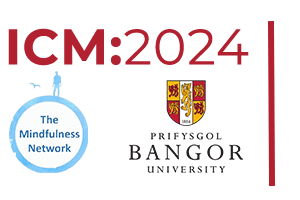Our aim is to make the 2024 International Mindfulness Conference as widely and easily accessible as possible, including welcoming neurodivergent meditators. Exploring neurodiversity brings new perspectives for practicing, teaching and researching mindfulness. In this blog, a neurodivergent member of our EDI advisory group answers questions on neurodiversity and explains our endeavours to create a neurodivergent-inclusive conference.
Why is neurodiversity important to consider in the mindfulness field?
It is estimated that 15-20% of the population is neurodivergent (Doyle, 2020), and so mindfulness teachers and researchers are likely to have people who are neurodivergent in their class or research study. Maybe the teacher or researcher is neurodivergent. The individual may or may not be aware of their neurodivergence.
Neurodivergent individuals are likely to experience the world differently from the neuromajority. Welcoming neurodivergent ways of thinking and being challenges our views about how cognition and interoception ‘should work’, opening up new ways of experiencing the world.

Teachers need to know how to include and support neurodivergent participants, both through neurodivergent-sensitive options during full group teaching and the provision of accommodations and support to individuals. Suggested frameworks and activities within mindfulness interventions may not be meaningful for neurodivergent individuals. We need to be able to validate individual experience and get curious when this takes us to places beyond common maps. This is also true for teacher training and supervision: support for neurodivergent trainees should ideally include input from experienced neurodivergent meditators.
Teachers also need to know that neurodivergent individuals experience a higher incidence of mental ill-health and trauma due to a range of factors including stigma, minority stress, masking and iatrogenic harm (harm arising due to medical care). Research indicates that mindfulness can be effective in reducing mental distress for some neurodivergent individuals, but further work is needed. Neurodiversity-affirming and trauma-informed approaches for students, professionals and participants are important for safe-guarding mental health (Shaw et al., 2022; Hartman et al., 2024).
Mindfulness researchers need to know that a significant minority of any population sample will be neurodivergent, and to consider inclusion in participant demographic information. Research into the experiences of neurodivergent meditators is a growing area, with consideration given to the potential broader perspectives offered by adopting the neurodiversity paradigm (Pellicano and den Houting, 2022) and the use of best practice in participatory and inclusive research methods (e.g., den Houting, 2021; AASPIRE, 2022).

